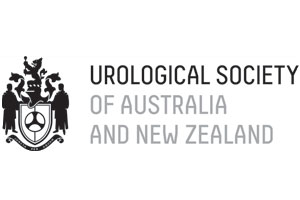20 January 2016
PSA Testing Guideline Recommendations Approved by NHMRC

Associate Professor Anthony Lowe
Chief Executive Officer,
Prostate Cancer Foundation of Australia
In partnership with Cancer Council Australia and a multi-disciplinary expert advisory panel comprising urologists, medical oncologists, radiation oncologists, pathologists, general practitioners, epidemiologists, allied health professionals and consumers, Prostate Cancer Foundation of Australia has developed national evidence-based clinical practice guidelines on PSA testing and early management of test-detected prostate cancer.
The guideline recommendations have now been approved by the CEO of the National Health and Medical Research Council, Australia's leading expert body for developing health advice for the Australian community, health professionals and governments.
We developed the guidelines in order to resolve the controversy surrounding PSA testing for both men and their doctors. The guidelines do not recommend a population screening program for prostate cancer (a program that offers testing to all men of a certain age group) as evidence does not support such a program. For men who decide to be tested it contains guidance on matters such as what age to start testing; how frequently to be tested; when to stop testing; the PSA level which should prompt further investigation; family history; and the role of the digital rectal examination.
The main recommendations contained in the guidelines are as follows:
- Men who are considering having a PSA test should be offered evidence-based decision support, including the opportunity to discuss the benefits and harms of PSA testing, before making the decision to be tested. Note that we are currently working on a PSA testing decision aid for use by men and their doctors.
- Men who are at average risk of prostate cancer who have been informed of the benefits and harms of testing, and who decide to undergo regular testing for prostate cancer, should be offered PSA testing every 2 years from age 50 to 69. Further investigation should be offered if the total PSA concentration is greater than 3ng/mL.
- Men aged 70 years or older who have been informed of the benefits and harms of testing, and who wish to start or continue regular testing, should be advised that the harms of testing may be greater than the benefits for men of their age.
- Men who have a father or one brother who has been diagnosed with prostate cancer have 2.5 to 3 times higher than average risk of developing the disease. Such men who have been informed of the benefits and harms of testing, and who decide to undergo regular testing for prostate cancer, should be offered PSA testing every 2 years from age 45 to 69.
- Men who have a father and two or more brothers who have been diagnosed with prostate cancer have at least 9 to 10 times higher than average risk of developing the disease. Such men who have been informed of the benefits and harms of testing, and who decide to undergo regular testing for prostate cancer, should be offered PSA testing every 2 years from age 40 to 69.
- Digital rectal examination is not recommended as a routine addition to PSA testing in the primary care setting. Note, however, that on referral to a urologist or other specialist, digital rectal examination remains an important assessment procedure prior to biopsy.
- Since any mortality benefit from early diagnosis of prostate cancer due to PSA testing is not seen within less than 6 to 7 years from testing, PSA testing is not recommended for men who are unlikely to live another 7 years.
Other recommendations contained in the guideline cover further investigations if the PSA concentration is above 3ng/mL; prostate biopsy and multiparametric MRI; active surveillance; and watchful waiting. The full text of the guideline can be found at www.pcfa.org.au/psa-testing-guidelines.
Prostate Cancer Foundation of Australia will be actively promoting the guideline recommendations in the coming months. Our goal is to ensure that all Australian men are fully informed about prostate cancer and are in a position to make an informed decision about PSA testing based on the latest available evidence on the benefits and potential harms of testing and treatment for prostate cancer.
PCFA acknowledges The Male Bag Ride as the major fundraising partner of the guidelines.
Take home messages
- The PSA testing guideline recommendations are approved by NHMRC
- Men should be offered the opportunity to discuss the benefits and harms of PSA testing before making the decision to be tested
- Men at average risk of prostate cancer who decide to be tested should be offered PSA testing every 2 years from age 50 to 69
- The harms of PSA testing may outweigh the benefits for men aged 70 and older
- Men with a family history of prostate cancer who decide to be tested should be offered PSA testing every 2 years from age 40/ 45 to 69 with the starting age depending on the strength of their family history
- Digital rectal examination is not recommended in addition to PSA testing in the primary care setting
PSA Testing and Early Management of Test-Detected Prostate Cancer - Clinical Practice Guidelines Q&A
 The guidelines are dedicated to the memory of Dr Ian Roos OAM, who passed away on 10 April 2015 after a long battle with prostate cancer. Ian was a scholar, scientist, administrator, educator, guide, philosopher and friend of Cancer Council Australia and Prostate Cancer Foundation of Australia. His work as a consumer representative, patient advocate and policy advisor, since his diagnosis with an aggressive prostate cancer 16 years ago, set him apart. Dr Roos will be greatly missed.
The guidelines are dedicated to the memory of Dr Ian Roos OAM, who passed away on 10 April 2015 after a long battle with prostate cancer. Ian was a scholar, scientist, administrator, educator, guide, philosopher and friend of Cancer Council Australia and Prostate Cancer Foundation of Australia. His work as a consumer representative, patient advocate and policy advisor, since his diagnosis with an aggressive prostate cancer 16 years ago, set him apart. Dr Roos will be greatly missed.














